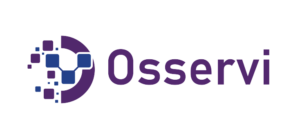In Ireland, companies and other legal entities are required to maintain a Register of Beneficial Owners (RBO) as part of the country’s commitment to financial transparency. The concept of a “beneficial owner” is crucial in combating financial crimes like money laundering and terrorist financing. If you’re a business owner or involved in the corporate sector in Ireland, it’s essential to understand the process and requirements related to the registration of beneficial owners.
-
What is a Beneficial Owner?
A beneficial owner is any individual who ultimately owns or controls more than 25% of a company or legal entity, either directly or indirectly. This can involve share ownership, voting rights, or control via other means. The main purpose of identifying these owners is to increase transparency and ensure that businesses are not used for illicit activities.
-
Why is the Register of Beneficial Owners Important?
The Register of Beneficial Owners (RBO) is a legal requirement in Ireland under the European Union’s Anti-Money Laundering (AML) directives. The RBO ensures that the identities of individuals who benefit from companies or trusts are disclosed to prevent the misuse of corporate entities for money laundering, tax evasion, and other criminal activities.
-
Who Needs to Register?
- Private Companies and Legal Entities: Irish companies and industrial and provident societies must file beneficial ownership information with the RBO.
- Trusts and Certain Partnerships: Trusts and certain types of partnerships are also required to submit information regarding their beneficial owners.
However, companies listed on regulated markets that are subject to disclosure requirements equivalent to the EU’s are exempt from this obligation.
-
Steps to Register Beneficial Owners
- Identify the Beneficial Owners
The first step is to identify all individuals who own or control more than 25% of the company. This can be through:
- Direct Ownership: Holding 25% or more of shares or voting rights in the company.
- Indirect Ownership: Control of the company through other means, such as through another legal entity or arrangement.
- Collect Required Information
For each beneficial owner identified, the following information must be collected:
- Full name
- Date of birth
- Nationality
- Residential address
- Nature and extent of the ownership or control
- Personal Public Service Number (PPSN), if the owner has one
- A declaration form (if required)
- Submit the Information to the Central Register
Once the beneficial owners are identified and their details are collected, the information must be submitted to the Central Register of Beneficial Owners (CRBO) via an online portal.
- Keep the Register Updated
It’s important to keep the register up to date. Any changes, such as when a beneficial owner’s details change or when someone new takes control of more than 25% of the company, must be updated in the RBO within 14 days.
-
Compliance and Penalties
Failure to comply with RBO regulations can result in significant penalties. Both companies and their beneficial owners can be held responsible for:
Failing to register beneficial owners or failing to update information.
Providing false or misleading information.
Penalties for non-compliance include fines of up to €500,000 and, in severe cases, imprisonment.
-
Common Issues and Challenges
- Difficulty Identifying Beneficial Owners: In some complex company structures, it may be difficult to identify the ultimate beneficial owner. Companies are advised to seek legal guidance if unsure.
- Data Privacy Concerns: Beneficial owners may have concerns about their personal information being available in public registers. However, certain sensitive information like residential addresses may be withheld from public disclosure.
- PPSN Requirement: For beneficial owners who do not possess a PPS Number, additional forms must be completed, adding complexity to the process.
-
What happens if there is No Beneficial Owner?
- If no individual meets the 25% threshold of ownership or control, the company must name its senior managing officials (e.g., directors) as beneficial owners. This ensures that someone within the company remains accountable.
-
Maintaining Compliance: Best Practices
- To ensure compliance with the RBO requirements, companies should:
- Conduct Regular Reviews: Schedule annual reviews of ownership structures to ensure the RBO is accurate.
- Train Key Personnel: Ensure that company secretaries, directors, and relevant personnel are aware of the RBO requirements and know how to handle changes.
- Seek Professional Help: Given the complexity of ownership structures in some cases, it’s advisable to consult with legal or compliance experts who specialize in beneficial ownership.
-
The Role of the Central Register of Beneficial Ownership (CRBO)
- The CRBO is responsible for maintaining the data on beneficial owners in Ireland. It offers an online system where businesses can submit their details securely. The CRBO system ensures transparency while providing a layer of protection for sensitive data.
Conclusion
Maintaining an accurate and up-to-date Register of Beneficial Owners is crucial for Irish companies to remain compliant with both local and European regulations. While the process may seem complex, understanding the key steps from identifying beneficial owners to registering their details will help your business meet its obligations effectively. Non-compliance can result in severe penalties, so it’s essential to stay informed and ensure your company adheres to all legal requirements. By following the outlined steps, businesses can fulfill their obligations and contribute to Ireland’s ongoing efforts to promote financial transparency and combat financial crime.
For more information on registering beneficial owners or our Payroll services, please visit our website and complete the contact form.
Continue Reading
Get a personal consultation.
Call us today at (01) 5170179
Packages to suit your budget (we are on avg 30% better value than competitors)..
Frequent Searches Leading To Pages:
Payroll Services Ireland | Payroll Services | Payroll Ireland | Payroll Outsourcing Ireland | Outsourced Irish Payroll | Outsource Payroll Services Ireland | Outsourced Irish Payroll Services Dublin & Ireland | Ireland Payroll Service | Payroll companies Ireland | Payroll service provider





